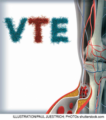Karen Appold
News
Unassigned, Undocumented Inpatients Present Challenges; Some Hospitalists Have Solutions
December 1, 2015
[caption id="attachment_12289" align="alignright" width="295"] Image Credit: ILLUSTRATION/PAUL JUESTRICH; PHOTOs shutterstock.com[/caption] Hospitalists are charged with giving the best of care and treatment, regardless of whether or not a patient is insured or has a PCP to transition to after di
![1]()
Audio
LISTEN NOW: Scott Sears, MD, Discusses Hospitalist Challenges with Unassigned, Uninsured Patients
December 1, 2015
Scott Sears, MD, chief clinical officer for Sound Physicians in Tacoma, Wash., discusses why patients without health insurance put hospitalists in a difficult situation.
![1]()
News
Hospitalists Play Vital Role in Patients’ View of Hospital Stay
September 9, 2015
Special Reports Resident Education, Feedback, Incentives Improve Patient Satisfaction Hospitalists' Role in Improving Patient Experience: A Baldridge Winner's Perspective Cognitive, Emotional Memory Disconnect Impacts Patient Satisfaction Rise of the Chief Patient Experience Officer H
News
Rise of the Chief Patient Experience Officer
September 8, 2015
Since the Cleveland Clinic hired its first CXO in 2007, more than 60 medical institutions have followed suit
Audio
LISTEN NOW: Vladimir Cadet, MPH, discusses alarm fatigue challenges and solutions
June 9, 2015
[audio mp3="http://www.the-hospitalist.org/wp-content/uploads/2015/06/VladimirCadet_AlarmFatigue_FINAL_030714.mp3"][/audio] VLADIMIR N.
![1]()
News
Hospitalists Key to Addressing Medical Device Alarm Fatigue
June 8, 2015
Beep! Bing! Buzz! Ding! Ring! Bleep! Everyday, throughout the day, hospitalists and other healthcare workers are inundated with alerts and warnings and notifications from medical and communication devices.
News
Tips for Reducing Medical Device Alarm Fatigue
June 1, 2015
In April 2013, The Joint Commission issued a Sentinel Event Alert that provided hospitals with recommendations for assessing their individual circumstances and developing a systematic, coordinated approach regarding medical device alarms. The recommendations correspond with those of the Association
Audio
LISTEN NOW: Monal Shah, MD, discusses exceptions for VTE admissions
March 6, 2015
Although patients with blood clots are oftentimes not admitted to the hospital, there are some exceptions.
News
Tip-Top Tactics for Bedside Procedure Training
March 6, 2015
David Lichtman, PA, director of the Johns Hopkins Central Procedure Service in Baltimore, Md., says bedside procedure training should be consistent and thorough, regardless of whether the trainee is a medical student, a resident, a fellow, or an established physician.
![1]()
News
Hospitalists Are Frontline Providers in Treating Venous Thromboembolism
March 3, 2015
Nearly half of all venous thromboembolism (VTE) events occur during or soon after hospitalizations.1 And who are the frontline providers diagnosing and managing VTE in the inpatient setting? “While VTE may not be the No.



